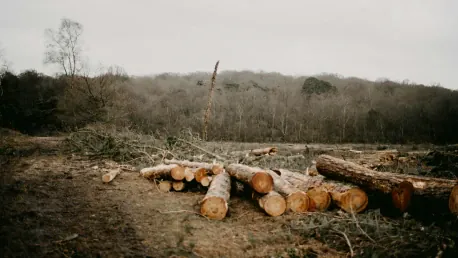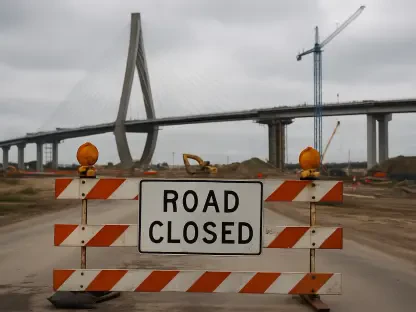The impending EU Deforestation Regulation (EUDR), set to be enforced by the end of 2025, mandates that companies importing specific commodities into the European Union ensure these products haven’t contributed to deforestation. The regulation targets crucial commodities like soy, coffee, palm oil, cocoa, timber, rubber, and beef, which have historically been tied to deforestation in their production regions. Additionally, it stipulates that only products devoid of links to deforestation or improper land conversion after December 31, 2020, will be accepted into the EU market. This initiative reflects a broader environmental commitment within the EU, aimed at promoting sustainable practices across global supply chains, thus exerting significant pressure on companies to adapt and innovate.
The Multi-Faceted Approach to Compliance
To comply with the stringent regulations, companies are leveraging technological advancements, robust partnerships, and human collaboration to navigate the complexities involved. Companies are increasingly turning to tech solutions, including satellite data, blockchain technology, software development, and traceability platforms. However, technology alone cannot ensure secure compliance; it is the harmonious combination of technology, strategic partnerships, and local insights that provides a higher likelihood of successful adherence.
One of the critical themes highlighted is the daunting logistical challenge companies face, especially given the scale of tracing supply chains right from the farm to the consumer. This challenge is particularly acute for companies with expansive and intricate supply chains involving thousands of suppliers, scarce resources, and the necessity to adhere to varied local regulations. To mitigate these challenges, technological companies are stepping in to provide essential tools and expertise designed for compliance. Companies must establish an integrated system where technology helps streamline verification processes and partnerships enhance on-ground insights and adaptability.
Technological Solutions for EUDR Compliance
Several tech companies have developed sophisticated solutions aimed at simplifying EUDR compliance. For instance, Netherlands-based Meridia has rolled out a platform called Verify, which integrates public and private data sources to produce precise farm maps, taking into account agroforestry systems to assess deforestation risks. Similarly, Satelligence, another Dutch company, focuses on blending satellite imagery with AI-driven algorithms to differentiate agricultural land from forested regions accurately, enhancing deforestation risk assessments. They believe that combining satellite data with ground reality insights yields the best outcomes, as it employs a comprehensive approach to both macro and micro-level analysis of land use changes.
A significant trend discerned in the article is the growing reliance on satellite data and AI to overcome the complexities of supply chain transparency. However, experts like Niels Wielaard from Satelligence and Vivian Ribeiro from Meridia stress the importance of complementing technological data with human insights derived from local partnerships and field surveys. Furthermore, fraud remains a pervasive challenge to transparency, with self-reported data being particularly susceptible to manipulation, an issue that satellite verification can help mitigate. Ensuring robust detection mechanisms for fraudulent activities is crucial for maintaining integrity within the supply chain.
Blockchain and Supply Chain Transparency
The paper elaborates on blockchain’s role in maintaining supply chain transparency, presenting it as a pivotal component in ensuring real-time adherence and verification of compliance. Suzano, a Brazilian paper and pulp company, is developing a blockchain system for in-house compliance evidence to verify their supply chain in real time. However, some companies, like Global Traceability, have moved away from blockchain technology due to its inflexibility for post-data correction, opting instead for more adaptable systems such as SAP HANA. These platforms provide greater flexibility in managing and correcting data, which is crucial in the dynamic environments of global supply chains where real-time adjustments are often necessary.
The integration of smallholders into the global supply chain emerges as another salient issue. Smallholders, especially in sectors like coffee and palm oil, often have limited access to required technologies, creating significant obstacles in data collection and EUDR compliance. This can result in their exclusion from global markets, which has wide-reaching implications not only for the individual producers but also for their industries. Solutions like RADIX Tree from Global Traceability and Earth Blox offer prebuilt and cost-effective tools that lower the barriers to entry and make regulatory compliance more accessible even for resource-constrained organizations. Despite these attempts, the process of integrating smallholders remains arduous, and often, data must be collected top-down from larger companies and aggregators, posing the risk of not fully capturing the inputs from smallholders.
The Importance of Early Preparation
The piece highlights that though the EUDR’s one-year delay has given companies extra time, many might still be unprepared once the regulation is fully enforced. Companies that start preparing now are likely to perform better as the deadline nears. The article observes that several cocoa companies have already begun adapting by collectively tackling deforestation risks with satellite data. Meanwhile, some palm oil companies are testing their compliance through initial shipments for customs clearance in Europe. These proactive steps set a model for others to emulate.
In summary, complying with the EUDR requires a synergetic blend of advanced technology, human expertise, and extensive collaboration. Technologies like satellite imagery, AI, and blockchain can significantly improve monitoring and traceability, but they must be supported by ground-level insights and strong partnerships throughout the supply chain. The inclusion of smallholders is a vital issue, requiring innovative solutions to make compliance feasible even for those with limited resources. A balanced mix of tech-driven solutions and cooperative efforts is crucial for companies to meet EUDR’s complex requirements and ensure deforestation-free supply chains.
Ultimately, the article portrayed a narrative centered on preparation, innovation, and strategy, essential for companies aiming to adhere to the upcoming EU regulation. This regulation seeks to reduce deforestation by promoting more accountable and transparent supply chains. By proactively aligning with the EUDR’s requirements, businesses not only support environmental responsibility but also enhance their positions within the increasingly sustainability-aware global market.









